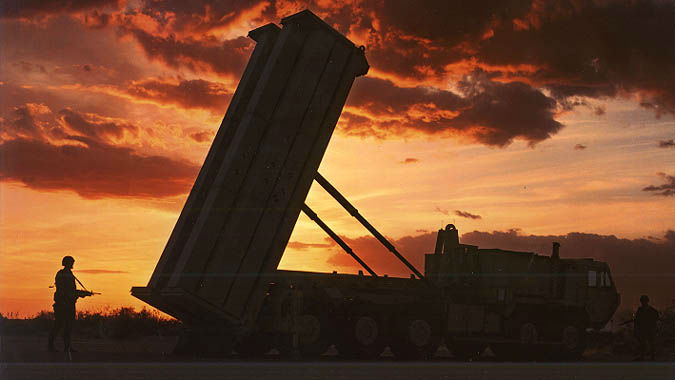U.S. Says THAAD Not Negotiable

The planned U.S. deployment of the THAAD anti-missile system in South Korea is not negotiable as part of efforts to agree new U.N. sanctions on North Korea after its fifth nuclear test, but Washington is confident tougher steps will be agreed before long, the senior U.S. diplomat for Asia said on Friday.
China, whose full backing is widely seen as crucial for sanctions on North Korea to be effective, is strongly opposed to the deployment of the Terminal High Altitude Area Defense system and some experts have argued it should be part of talks on new U.N. measures.
Asked whether THAAD was negotiable, Daniel Russel, the U.S. assistant secretary of state for East Asia, referred to a U.S.-South Korean agreement on the deployment.
"No. The two countries have made a decision," he said.
U.S. Secretary of State John Kerry, meeting Southeast Asian leaders in New York on the sidelines of the U.N. General Assembly, said the United States would "do whatever is necessary to defend our own citizens and to honor our security commitments to our allies."
Discussions are under way on a possible new U.N. sanctions resolution on North Korea after it conducted its fifth and largest nuclear test on September 9.
Russel later told a news briefing discussions were still at an early stage, but he was confident that a new U.N. resolution would be agreed before long, imposing further sanctions and tightening existing ones.
Among the aims, he said, would be to prevent North Korea's abuse of international infrastructure, including banking and shipping, to further its nuclear program.
China is North Korea's main ally, but has been angered by its repeated missile and nuclear tests and backed tough U.N. sanctions on Pyongyang in March.
QUESTIONS REMAIN
Beijing has said it will work within the United Nations to formulate a necessary response to the latest nuclear test, but questions remain as to whether it is willing to agree tough enough steps to force North Korea to abandon nuclear weapons.
Two experts from the Massachusetts Institute of Technology's Center for International Studies last week argued that if China were to agree to serious graduated sanctions on North Korea, the United States could agree to freeze the number of ground-based missile interceptors on the Korean Peninsula.
Eric Heginbotham and Richard Samuels said that as part of a set of incentives to China, Washington "might also agree, after consulting South Korea, to withdraw THAAD from the peninsula when North Korean nuclear weapons no longer pose a threat."
On Monday, Washington said U.S. President Barack Obama and China's Premier Li Keqiang agreed in a meeting on the sidelines of the U.N. assembly to step up cooperation in the U.N. Security Council and in law enforcement channels.
China's Foreign Ministry later said a Chinese conglomerate, the Liaoning Hongxiang Group was under investigation following the provisions of the sanctions agreed in March.
In his General Assembly speech on Thursday, South Korea's Foreign Minister Yun Byung-se accused North Korea of "totally ridiculing" the United Nations through its nuclear and missile tests and said it was time to reconsider whether it was qualified for U.N. membership.
Russel said it was "not unnatural" that such questions should be raised. He stopped short of endorsing the call, but added:
"The international system is being exploited by (North Korea) ... for the purpose of pursuing an illegal nuclear and missiles program that threatens both its neighbors and regional peace and security."
North Korean Foreign Minister Ri Yong Ho was defiant in his speech to the U.N. General Assembly on Friday, vowing that the communist state would strengthen its nuclear weapons capability and never give it up while it was threatened by nuclear-armed states.
